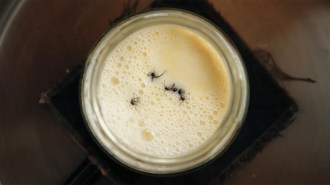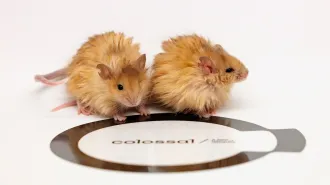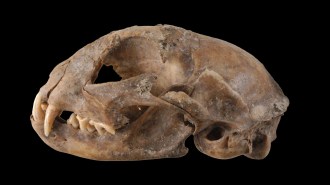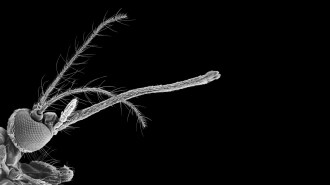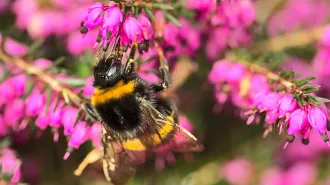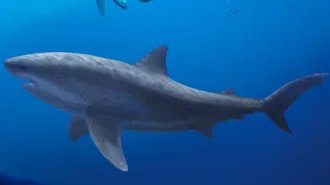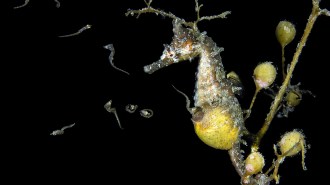Dead, live guppies vie for paternity
Females can use sperm months after mates go belly up
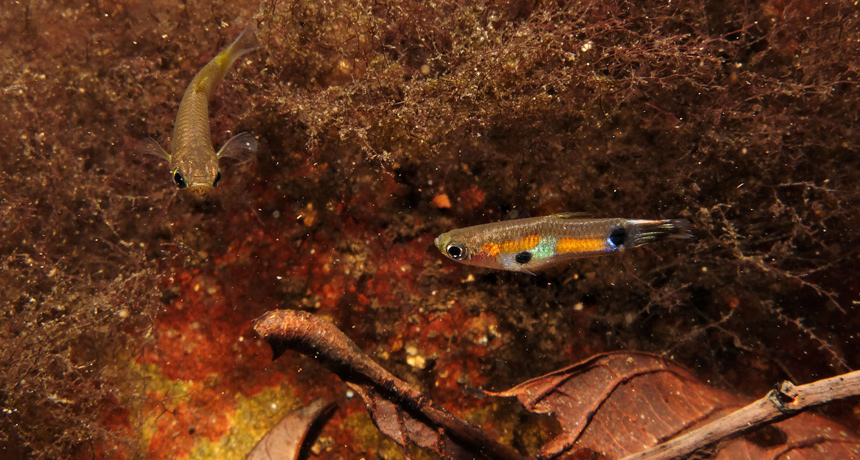
Among wild guppies in Trinidad streams, a female (left) can store sperm from a male (right). In a new experiment, female Trinidadian guppies lived much longer than males and still used sperm left over from the generation of the grandfathers of current males.
Paul Bentzen/Dalhousie
